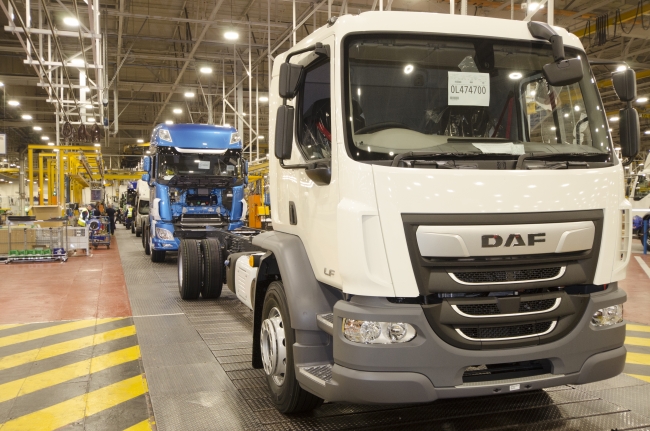2 minute read - 1st July 2022
Commercial vehicle production growth continues in May
New figures published by the Society of Motor Manufacturers and Traders (SMMT) show that UK commercial vehicle (CV) production grew 26.5% in the fifth month of 2022, with 7,900 new vans, buses, trucks, coaches and taxis leaving British factory lines. This meant CV manufacturers recorded their best May performance since 2012, continuing a strong start to 2022 with five consecutive months of growth.
While output for customers in the UK declined by -26.3%, production for overseas markets grew by 91.6%, partly due to greater demand following the end of many lockdown measures abroad. Almost seven in 10 (67.9%) British-built CVs were exported in the month, with some 91.8% of these destined for the EU.
Year-to-date, CV production is up 44.0% on last year, at 41,047 units, and some 29.1% up on the same period in 2019, making the best January to May performance since 2012. This is evidence of robust demand from fleet operators and the capacity of CV manufacturers to deliver for the market despite significant global supply constraints and domestic economic challenges.

UK commercial vehicle production grew 26.5% in May, with 7,900 vehicles leaving British factories – the fifth consecutive month of growth and best May performance since 2012 / Picture: DAF Trucks
However, as with the car sector, the CV sector needs certainty and stability, particularly as they continue their journey towards net zero when the wider UK automotive industry faces a £90m increase in energy bills. To enable CV manufacturers to undertake the transition within an increasingly short time frame, tackling energy costs and inflation must be a priority, as well as a smooth and timely implementation of a new GB Type Approval scheme that does not hinder global competitiveness.
Mike Hawes, SMMT chief executive, said: “The CV sector is a rare beacon amid the gloom of economic challenges being faced by businesses and fleet operators in the UK. With the best year to May output for a decade, and a growing number of zero emission commercial vehicle models for a wider range of use cases, there are grounds for optimism. However, competitiveness is not guaranteed as rising energy costs and inflation continue to have a detrimental impact on manufacturers and markets. These issues must be tackled head-on, to enable investment in innovation and training that will drive the CV sector’s transition to net zero, futureproofing jobs and livelihoods for years to come.”

Graphic and data courtesy of SMMT